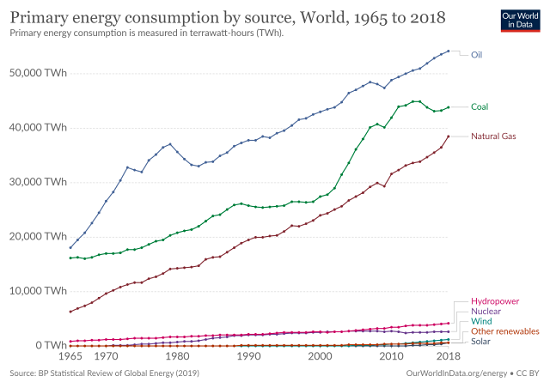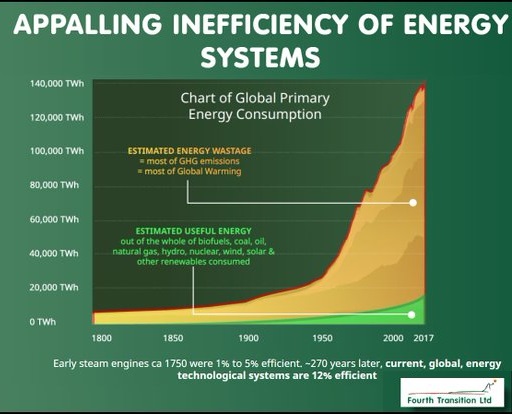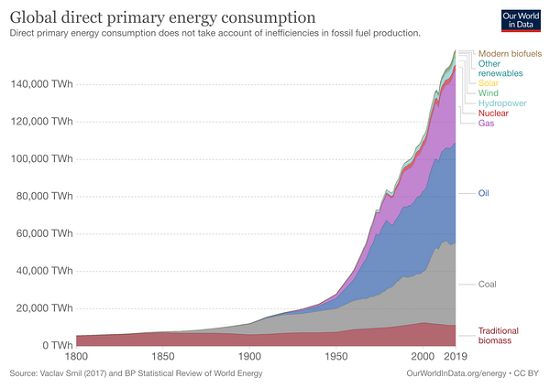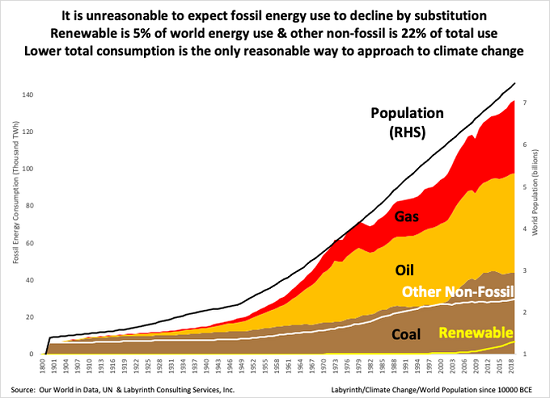http://www.informationclearinghouse.info/56554.htm
Syria’s Victory Stuns NATO Enemies
Syria’s presidential elections this week were a resounding success against a backdrop of 10 years of brutal, relentless war imposed on the Arab country by the United States and its NATO partners.
After a decade-long torment from terrorist mercenaries deployed covertly by the Western powers, as well as overt aggression from NATO military forces illegally attacking the country and from cruel economic sanctions warfare, the people of Syria remain defiant and independent.
President Bashar al-Assad was re-elected for a fourth seven-year term after winning 95 percent of votes cast. The achievement is stunning. It completely refutes – indeed makes a mockery of – the Western narrative depicting Assad as a “tyrant”.
Despite all the grueling hardships, the Syrian people turned out in droves to vote on Thursday. The turnout was over 78 percent with more than 14 million votes cast out of an eligible 18 million electorate.
There is no way the Western governments and their servile corporate media can spin this epic demonstration of popular defiance to their nefarious intrigues for regime change in Syria. Hence, the total silence among Western media about the election result. That silence is at once hilarious and damning of Western guilt over the real nature of the war in Syria.
It was always a foreign war of criminal aggression. If there was any justice prevailing in this world, Western politicians by the dozens should be tried for war crimes.
Before the election this week, the United States, Britain, France, and other NATO powers tried to smear the Syrian democratic will, labeling the ballot as neither fair nor free.
Well, the sheer numbers of people turning out to vote and the subsequent scenes of jubilation across Syria tell another story, one that confounds the Western propaganda and exposes the criminality of the NATO powers and their toxic media.
The Syrian nation has refused to bow after years of NATO-backed terrorism in their country. They have chosen their president – again.
The same kind of shameful silence in Western media has been seen numerous times before when the Syrian army liberated towns and villages from Western-backed terrorists. When people came out to greet their Syrian army liberators, the Western media simply ignored the reality despite having told their consumers beforehand that the Syrian army and their Russian allies were committing slaughter against “rebels” and civilian populations.
Not one Western mainstream media outlet has followed up to report on how Syrians feel about being liberated and of having their peaceful lives restored. That’s because Syrians would praise the leadership of Assad, the courage of the army, and the crucial help of Russia, Iran and Hezbollah. In other words, the West’s lies would be demolished by the truth, and so their media are compelled to ignore and keep silent.
For everyone around the world who desires justice and peace and the defeat of imperialism, the victory from Syria’s election is a glorious day to celebrate. Congratulations are due to President Assad. But more so to the people of Syria who showed that it is possible to stand up to the real tyranny, that of the United States and its lawless NATO rogue allies who wanted to destroy Syria in order to install their own puppet regime. Despite unspeakable barbarities inflicted on the peace-loving people of Syria, they have remained steadfast in their unity and determination for independence, regardless of their different religions. The NATO ploy of trying to incite a sectarian war among Syrians failed because they knew all along who their real enemy was.
For those willing to see reality, Syria exposes the forces of evil in this world. The Western lying media tell us that Russia, China, Iran, Venezuela, and so on, are “bad” and are threatening global peace. The Americans and their NATO partners lecture and pontificate about “rules and order”. When it is they who are caught in the headlights of truth: they tried to destroy a country just like they have countless others. But that country – Syria – just showed its spectacular strength to overcome the evil designs of the United States and its minions in NATO.
Lamentably, Syria faces more trials and challenges from the continuing economic warfare being waged by US and European sanctions. Reconstruction from a decade of NATO aggression will not be easy. But with the help of Russia, China, Iran, and others, the Syrian people will win finally. They have just shown their invincible resilience beyond any doubt.
....
https://www.oftwominds.com/blogmay21/return-to-normal5-21.html
Do We Really Want to Return to "Normal" If "Normal" Is Destroying the Planet?
Change the incentives, and the outcomes change.
Ecologist Howard Odum provided a profound insight into human expansion, stagnation and collapse.
He argued that humans are wired to maximize power output (i.e., consumption) rather than maximize
efficiency.
In other words, humans are wired to strip the tree of every ripe fruit and throw a party,
have more children and use the surplus food to feed an army of conquest. Efficient use of
resources is simply not part of what I term Wetware 1.0, the set of tools that was selected
and optimized over the past 200,000 years for small hunter-gatherer tribes roaming an apparently
near-infinite world.
We've squandered the surpluses enabled by hydrocarbons to maximize energy output (consumption)
rather than achieve efficiency. That is finally coming around to haunt the entire
"infinite growth on a finite planet" status quo.
Here's the happy story being promoted by the status quo: we can keep overconsuming /
wasting resources on a vast scale by electrifying everything that is currently powered by
hydrocarbons:
The Electrification of Everything: What You Need to Know.
There are a great many problems with this fantasy. One is that per Odum, humanity doesn't
replace hydrocarbons with wind-solar, it consumes all the alt-energy being added, too.
Adding energy just increases consumption.
Another is that the quantity of scarce minerals and resources needed to replace hydrocarbons
with so-called renewable energy is so vast that it's unrealistic.
As I've noted many times, per analyst/educator
Nate Hagens, "renewables" are actually
'replaceables', as solar panels and wind turbines wear out and need to be replaced every 20-25 years,
if not sooner.
The scale of energy consumption is so vast and the percentage supplied by solar and wind is so
insignificant. Most charts lump solar and wind with hydropower and biofuels (wood), but wind and
solar provide at best 3% of global energy, after all the tens of billions of dollars that have
been invested.
To provide the majority of global energy consumption, we'd need to increase solar-wind 20-fold,
from 3% to 60%. The problem, as Tim Watkins explains, is the Earth doesn't have enough scarce
minerals to build this monstrous global system, and then replace it every 20-25 years:
Are you still buying this?
"Net-zero carbon dioxide by 2050 would require the deployment of ~1500 wind turbines (2.5 MW) over
~300 square miles, every day starting tomorrow and continuing to 2050."
"Challenges of using 'green energy' to power electric cars: If wind farms are chosen to generate
the power for the projected two billion cars at UK average usage, this requires the equivalent
of a further years' worth of total global copper supply and 10 years' worth of global neodymium
and dysprosium production to build the windfarms."
"To replace all UK-based vehicles today with electric vehicles, assuming they use the most
resource-frugal next-generation NMC 811 batteries, would take 207,900 tonnes cobalt,
264,600 tonnes of lithium carbonate (LCE), at least 7,200 tonnes of neodymium and dysprosium,
in addition to 2,362,500 tonnes copper. This represents, just under two times the total annual
world cobalt production, nearly the entire world production of neodymium, three quarters
the world's lithium production and at least half of the world's copper production during 2018."
Every kilogram of these scarce minerals must be mined, transported and processed with hydrocarbons.
The problem with wind and solar is intermittency: modern industrial economies require steady
electrical power 24/7 or they fail. Wind and solar generate power intermittently, meaning
they can't generate a steady supply 24/7 nor can they generate electricity when consumers want
to use it.
So the intermittency problem becomes a storage problem: how can we store surplus electricity
in quantities large enough to power our vast consumption when the wind dies and the sun goes down?
There are no cheap, easy answers to storage, and ideas such as converting it all to hydrogen
are not realistic due to cost and safety issues. There isn't enough lithium and other scarce
minerals to build batteries for 2 billion vehicles and storage for every electrical grid on
Earth. (And note that lithium batteries have very limited lifespans and need to be replaced
every decade, if not sooner. Very few batteries are recycled, so recycling billions of
batteries is also a fantasy.)
As Gail Tverberg observes in her recent post,
How the World's Energy Problem Has Been Hidden:
"So-called renewable fuels tend to be very damaging to the environment in ways other than CO2
emissions. This point is made very well in the new book
Bright Green Lies: How the Environmental Movement Lost Its Way and What We Can Do About It
by Derrick Jensen,
Lierre Keith and Max Wilbert. It makes the point that renewable fuels are not an attempt to
save the environment. Instead, they are trying to save our current industrial civilization
using approaches that tend to destroy the environment. Cutting down forests, even if new trees
are planted in their place, is especially detrimental. Alice Friedemann, in her new book,
Life after Fossil Fuels: A Reality Check on Alternative Fuels, points out the high cost of
these alternatives and their dependence on fossil fuel energy."
Many people I respect see thorium nuclear reactors as the answer, but like all the other
proposals to replace the staggeringly large consumption fueled by hydrocarbons with some other
source, it's not as easy in the real world as it is conceptually.
India has reserves of thorium and has an ambitious plan to build thorium reactors. But the
thorium nuclear fuel cycle is extremely non-trivial, and despite billions of rupees invested,
India has yet to complete a single large-scale thorium reactor--and neither has any other nation.
There are seven research reactors scattered around the world, but no actual power plants.
India's Ambitious Nuclear Power Plan--And What's Getting in Its Way:
"With the commercialization and enhanced use of renewable energy technologies, the per unit
cost of electricity produced from renewables has gone down significantly. The cost of solar
power in India right now is Rs 2.62 per unit, almost half of the per unit cost of electricity
being produced by the recently operational Kudankulam nuclear power plant (Rs 4.10 per unit)."
The problem is we've based our entire global economy on maximizing consumption, not efficiency,
so that waste = growth = maximizing profits.
Consider this chart of energy consumption, and the chart of energy efficiency, which reflects
the appalling inefficiency of our consumption.


Given that we incentivize profits earned from increasing waste (i.e. "growth"), this shouldn't
surprise us.
As Tim Morgan has explained, our entire financial system presumes that money-finance is the
master system that controls everything in the real world, when in fact the financial system
is an overlay on the energy system.
In essence, the entire financial system is nothing but abstract claims on energy that unlike
energy can be endlessly multiplied.
Claims (currency and debt) can be created out of thin air, but energy systems cannot be created
out of thin air.
The answer isn't to attempt to replace a disastrously inefficient and wasteful system with
replaceable energy sources--a delusional fantasy. The answer is to set aside our Wetware 1.0
programming to maximize energy output and consumption in favor of maximizing energy efficiency
and conservation.
There are a number of ways this transition could be made. For example, rather than tax human
labor, we could tax the consumption of non-renewable resources.
UnTax--Taxing Away Climate Change:
"Yet the reason for this inertia is simple: the price we pay for fossil fuels, and most other
non-renewable resources, is far too low, because we don’t pay for their creation which took
hundreds of millions of years, but only for their extraction. To make matters worse, more than
90% of all taxes are paid on labor in most countries, which discourages employment and forces
automation into every part of the economy.
This mix-up, a by-product of the industrial revolution, leads to pollution, greenhouse gas emissions,
waste production and the unnecessary use of automation, which damages our ecosystems and at the
same time deprives future generations of their right to access those scarce resources."
Do we really want to return to the "normal" of waste = growth = maximizing profit if this "normal"
is destroying the planet?
Cutting consumption is anathema in the current mindset of waste = growth = maximizing profit,
but the Pareto Distribution suggests we could cut consumption by 80% and still retain 80% of
the essentials for a good life such as clean water, healthy food, basic shelter, etc.
As I posted in Musings #9, consider this short film of Market Street in downtown San Francisco
shot a few days before the catastrophic earthquake and fire of 1906.
A trip down Market Street before the fire (Library of Congress).
Life was pretty good in 1906 San Francisco and many other cities. Now look at the energy
consumption around 1900: it was around 15 TWh compared to today's 160 TWh, roughly 10% of
current consumption. And the engines and machines of 1906 were by today's standards extremely
inefficient. Adjust for increases in population and efficiency and it's clear lower-consumption
life is not necessarily a return to living in caves.


Do we really want to return to "normal" if "normal" is destroying the planet?
Waste is everywhere in our way of life because waste is profitable in the current arrangement.
What would happen if waste was taxed at very high rates and efficiency was the sole means of
maximizing profits?
Charlie Munger (head of Berkshire Hathaway) famously said: "Show me the incentive and I will
show you the outcome." That's how humans operate: we respond to the incentives presented,
even if they destroy the planet.
Change the incentives, and the outcomes change. What if efficiencies and conservation earned
the biggest rewards and human labor was freed from taxation? The outcomes would improve
very dramatically--and that's just the start.

No comments:
Post a Comment